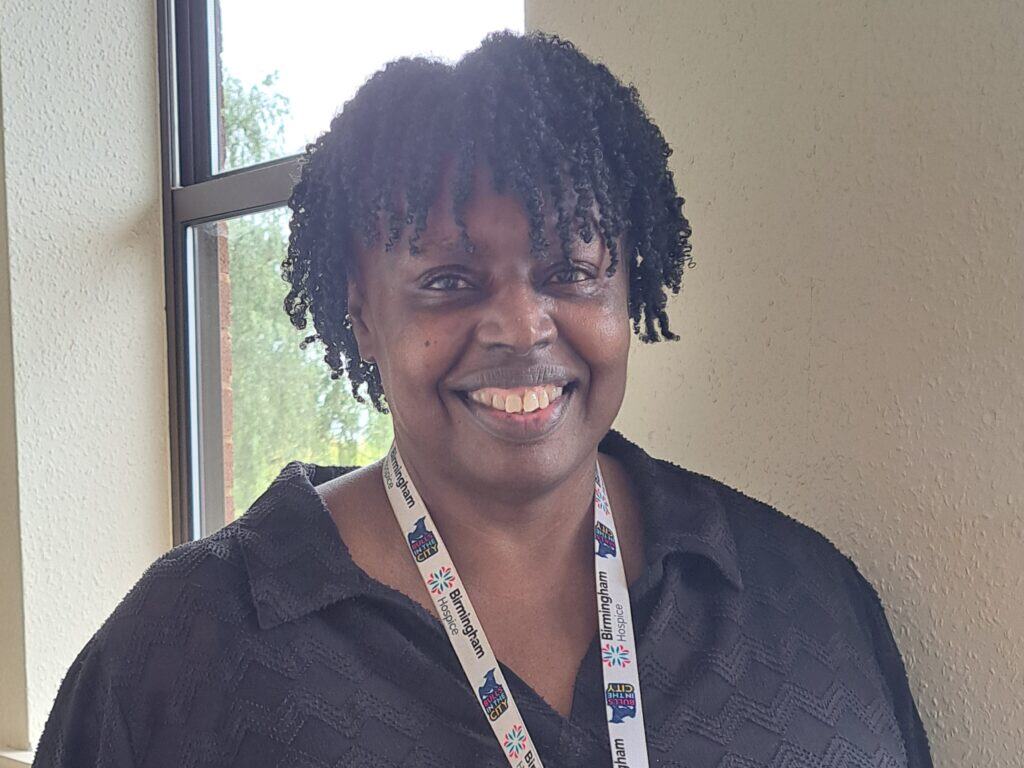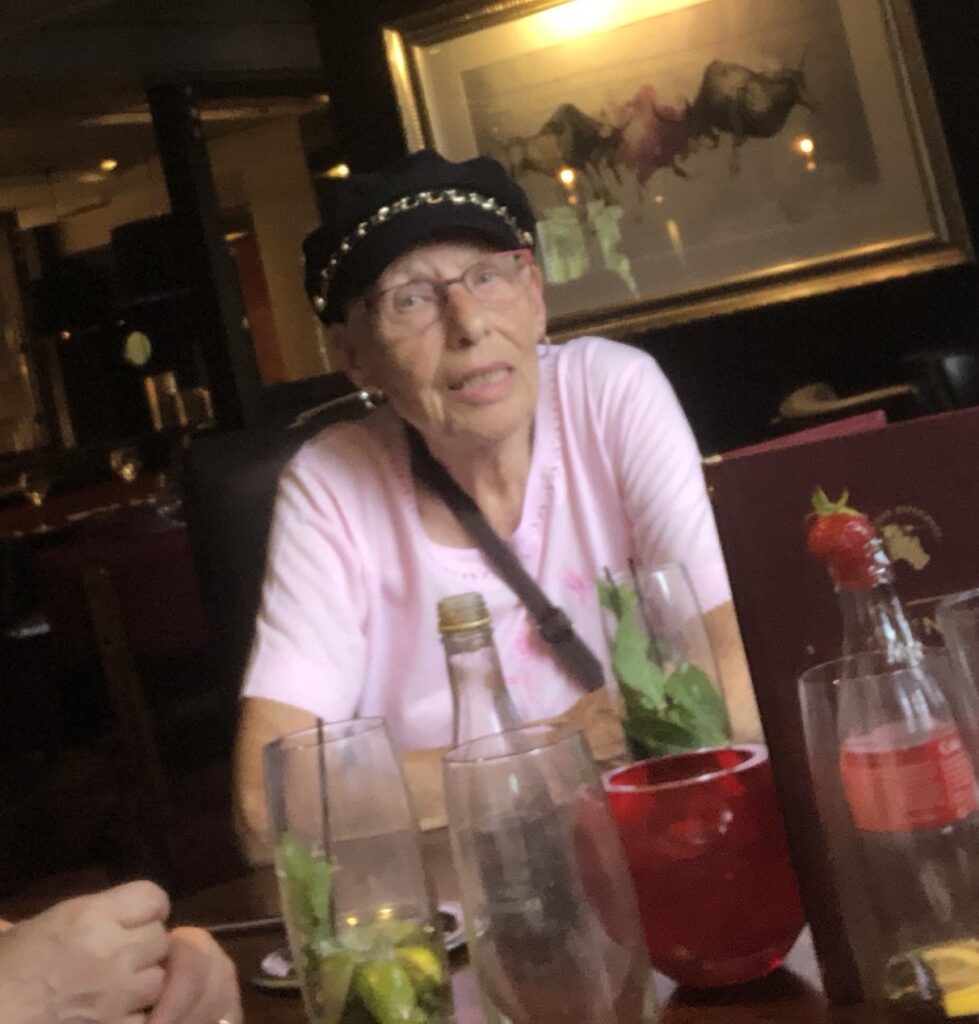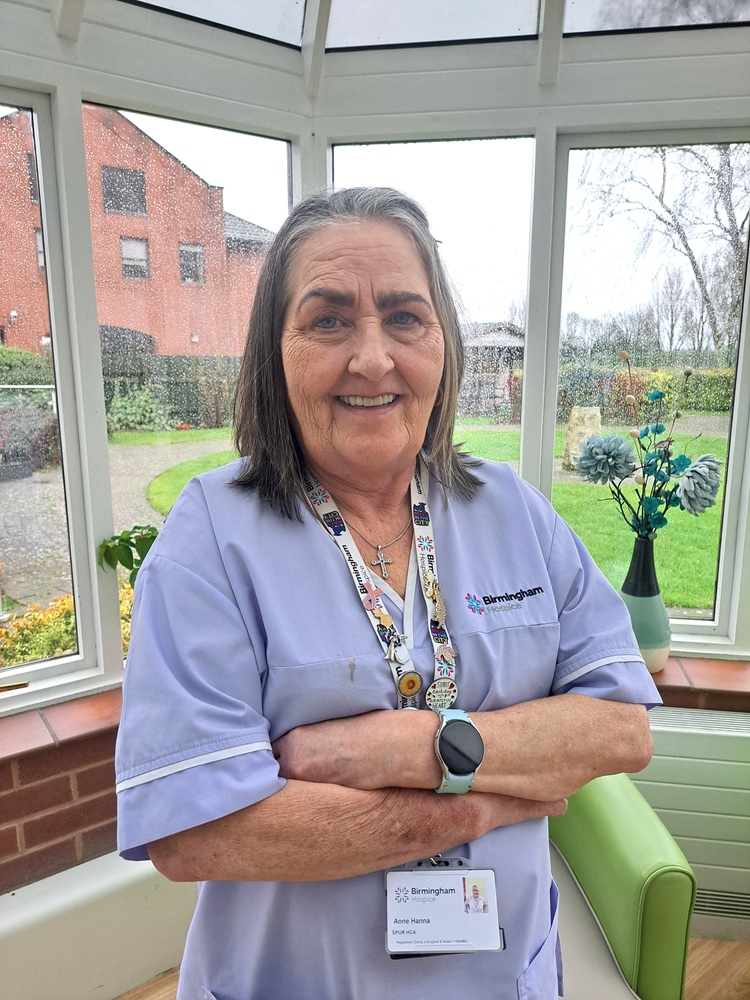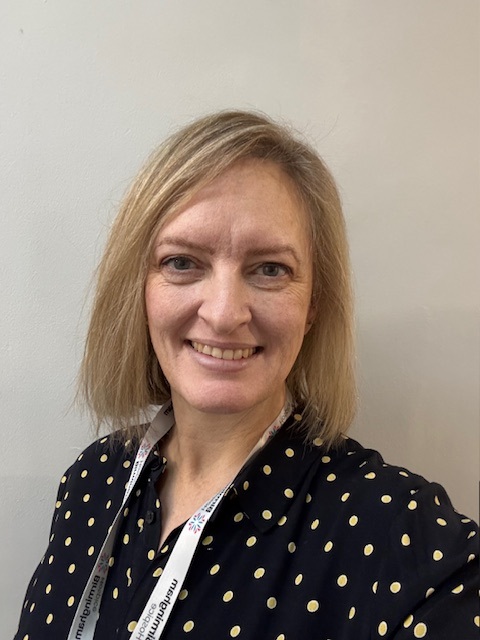“Our training means that others are equipped to support patients in their preferred place of care. That has a real impact on the patient and their family, knowing that they are where they want to be at the end of their life.”
With a background as a research scientist, Hilary Murray now leads the Education and Research Team at Birmingham Hospice. In addition to overseeing the internal training that staff undertake, she manages the external education and research activity that the charity carries out.
“I’ve always been an educator, even when I was working in universities or hospitals, so I think I’ve got teaching in my blood,” Hilary explained. “When I had the opportunity to join the hospice’s Education Team, I felt that it was a comfortable fit. It’s a privilege to work here and be able to do something to support others.”
As the hospice’s Clinical Education Lead, Hilary ensures that each member of our staff, both clinical and non-clinical, receives a programme of training to perform their jobs safely and effectively. “It’s an opportunity for them to grow and develop in their roles,” she added. “If they find that there’s an area where they could benefit from further training, we can provide that for them as well.”
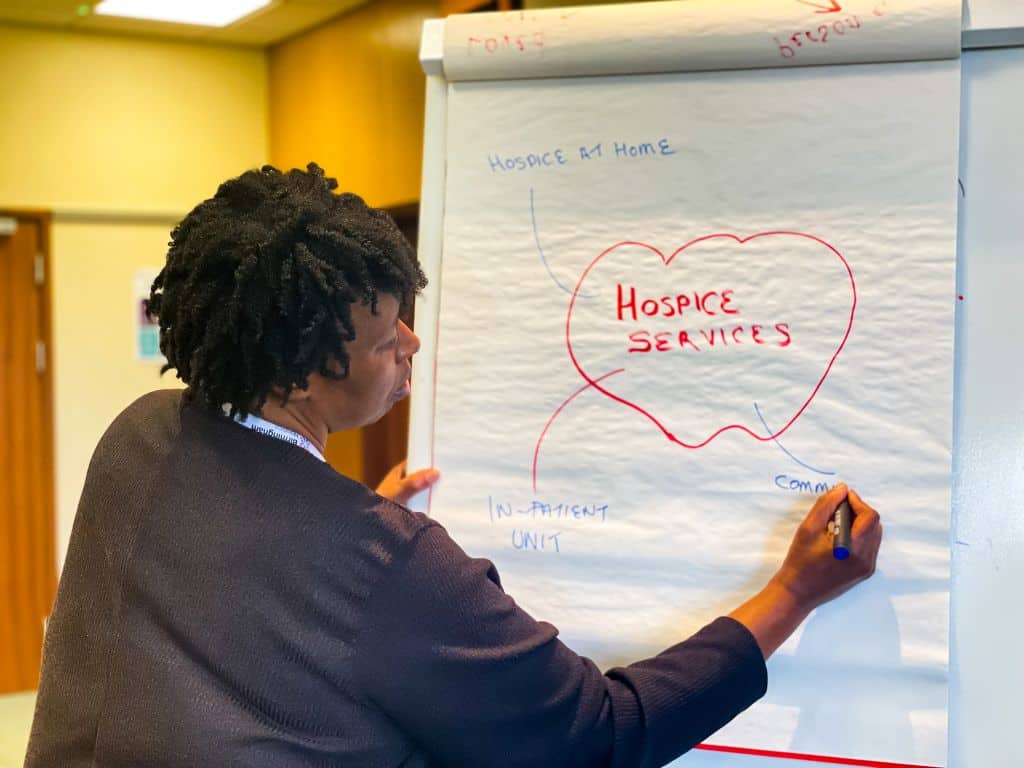
Alongside internal training, the hospice provides palliative care education for a range of external organisations across Birmingham. This specialist training enables medical professionals and care facilities throughout the community to effectively care for individuals at the end of their lives. As Hilary told us, “in a care home, the patient can be like a member of the family, as they’ve been there for such a long time. We upskill the staff so that they can comfortably support their residents during that really challenging period.”
One of the groups for whom the Education Team’s support is most influential is students. Recognising a need for a greater emphasis on end of life care in medical programmes, we were approached by local universities to put together a week of training for undergraduates. As the only experience of palliative care that students may receive across their education, this time with the hospice is invaluable.
“Until they meet us, all of their training is centred around treating a patient to cure them, but palliative care brings a complete change in thinking,” Hilary said. Through our specialist training, students learn a person-centred approach to care for those for whom medical intervention is no longer appropriate. This framework can present a challenging adjustment: “It’s all very new, which is why it’s so important for them to have that week – both to learn the theory and to go out with the team to care for patients.”
For the Education Team, the most rewarding outcome of their work is making it possible for individuals to receive care where they are most comfortable. As Hilary highlighted, “if a patient is in hospital, they can only be discharged to their home if there is someone with the appropriate training to care for them.”
By equipping generalist practitioners across Birmingham to deliver end of life treatment, the hospice enables patients to be supported in their preferred place. “That has a real impact on the patient and their family,” she emphasised, “knowing that they are where they want to be at the end of their life.”
